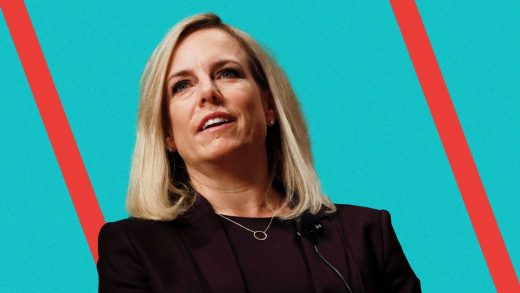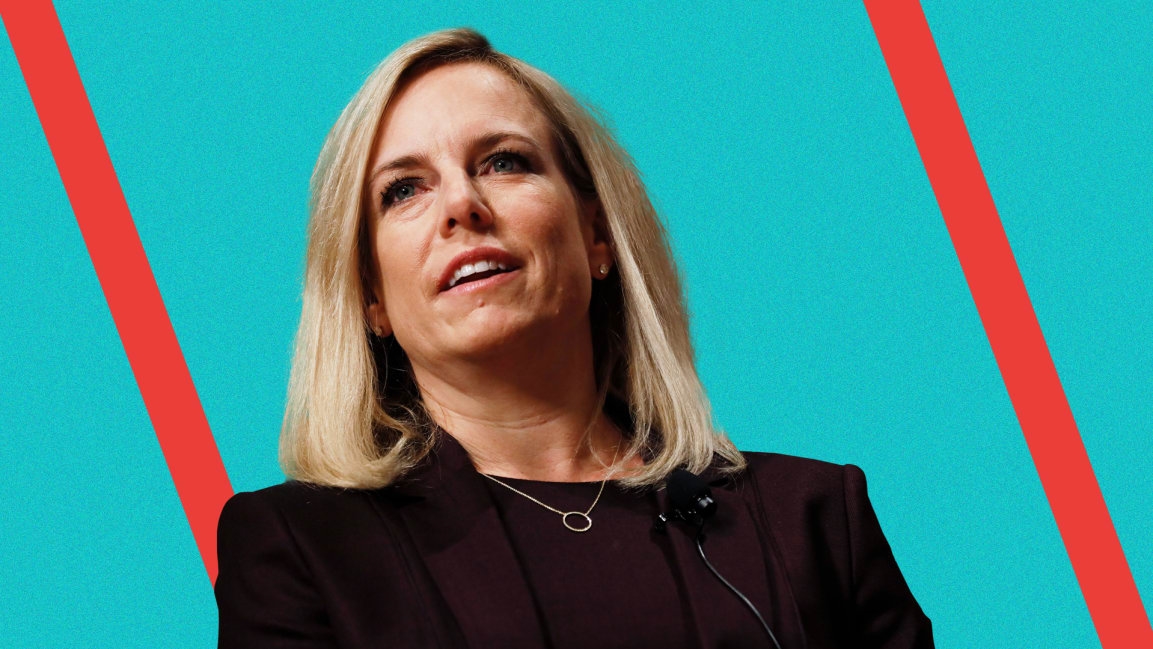Brandi Carlile’s protest set off a backlash against ‘Fortune’ for hosting Kirstjen Nielsen at Most Powerful Women Summit
Power is an intangible commodity with a fluid definition. Among the participants in Fortune’s Most Powerful Women Summit in Washington, D.C., this week are CEOs such as Tory Burch, whose power is rooted in commerce and culture, along with politicians such as former U.S. National Security Adviser Susan Rice, whose power extends to world order. Although the mix of boldface names on the list is fairly wide-ranging, one name in particular has brought with it a pronounced backlash.
The controversy is not about whether former United States Secretary of Homeland Security Kirstjen Nielsen should be considered a Powerful Woman, but whether an impartial business publication should give her a platform for talking about the way she chose to use that power.
Although she resigned from her position at the White House back in April, Nielsen remains the face of Trump’s Zero Tolerance policy, which removed more than 2,700 children from their parents in 2018. (Many of those children remain separated from parents who have been deported, and the government has said it could take up to two years to identify all the children affected by Trump’s policy.) Nielsen ultimately may have only led the DHS for a little over a year, but her lasting legacy will be the memory of her insisting that no family separation policy existed long after it was clear one did, and arguing over the semantics around “cages” in a congressional hearing.
One woman not especially thrilled with how Nielsen used her position of power is Grammy-nominated singer-songwriter Brandi Carlile, who was slated to appear at the event but dropped out in protest.
With respect and gratitude. pic.twitter.com/rhKpRYf6gF
— Brandi Carlile (@brandicarlile) October 21, 2019
As if Carlile’s well-publicized drop-out weren’t message enough, on Tuesday morning, some protesters showed up to the site of the Summit, the Mandarin Oriental hotel, and drove around in a Billboard truck that read: “Powerful women don’t put kids in cages.”
Billboard truck calling out Kirstjen Nielsen spotted outside @Fortunemagazine‘s Most Powerful Women Summit (@fortuneMPW) in Washington: “Powerful women don’t put kids in cages. Fortune: #StopNormalizingHate” #NoSoftLanding pic.twitter.com/uvcDqtdQp9
— CREDO Mobile (@CREDOMobile) October 22, 2019
Fortune is not the first organization to host a gathering and face outrage over its speaker lineup. The New Yorker rescinded its invitation to Steve Bannon to headline its 2018 festival after fellow speakers condemned the choice to give him such a prestigious showcase for his alt-right ideology. Conversely, in 2017, several months into her father’s presidency, Ivanka Trump was among the speakers at Fortune‘s MPW Summit—and her appearance generated little to no controversy.
What’s happening this time is another aspect of the conversation from a couple of weeks ago about Ellen DeGeneres’s defense of George W. Bush. (A conversation that already feels like it happened a couple of months ago.) It’s the idea that political actions should have social consequences. If the toxicity that justly loomed over Bush’s name as he ended his presidency shouldn’t dissipate with time alone, why should the toxicity associated with Nielsen be forgotten without even the memory-fogging alchemy of time? What lessons about power could someone who was forced to resign for not being cruel enough impart based on the amount of cruelty she apparently found acceptable?
We asked Fortune for a comment on the decision to include Kirstjen Nielsen in the Summit, and here is the response:
“We believe that the most powerful women in business, who also happen to be some of the most powerful women in the world, have strong views about how the U.S. Administration has handled its immigration policy. We sought out an opportunity to bring the woman who was effectively responsible for that policy to ask her tough questions publicly and on stage about that policy. We brought in Amna Nawaz from PBS NewsHour to do the interview with the clear understanding that this would be a no-holds-barred interview, and that there would be an opportunity for our MPW members to ask questions as well. That’s how we practice live journalism.”
Fast Company also produces several live editorial programs a year. Its editor-in-chief is a former editor at Fortune, where she helped lead several Most Powerful Women summits.
If you feel strongly one way or the other about Nielsen’s inclusion at the Summit, tweet at us.
(46)



